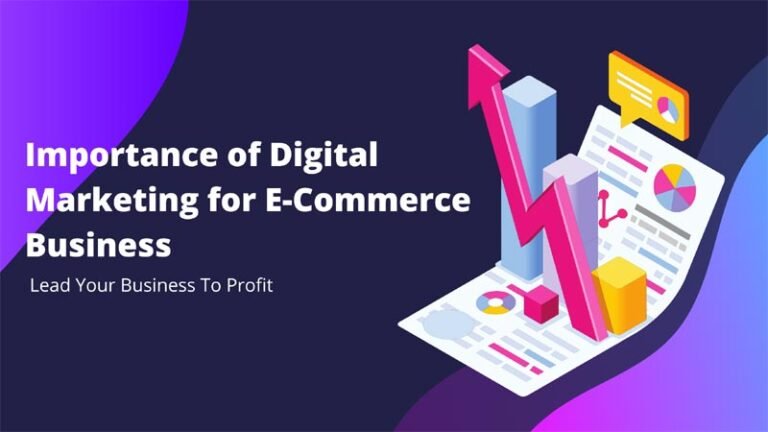Fundamentals of Ecommerce Marketing: A Guide to Boost Online Sales

Today’s digital-first era means ecommerce is no longer an option — it’s necessary. Whether you’re opening a new online store or expanding an existing one, getting the basics of e-commerce marketing right is vital to growth and survival. This guide addresses the most important areas any online business needs to pay attention to to maximise visibility, drive sales, and build brand presence.
1. Knowing the E-commerce Market
Before we move on to strategies, let’s get a sense of the e-commerce environment. The market is extremely dynamic — influenced by changing trends, emerging technology, and altering customer needs. By performing regular market research, monitoring industry updates, and studying your competitors, you can make better-informed decisions that cater to the needs of your customers.
Ask yourself:
- What are the emerging trends affecting buyer behaviour?
- Who are my key competitors?
- What are the distinguishing challenges of my niche?
With these insights, you’ll be better positioned to build an e-commerce marketing strategy tailored to your goals and target audience.
2. Search Engine Optimisation (SEO)
E-commerce SEO is a foundational element of any successful online store. Search engines remain a key source of traffic, and ensuring your site appears in relevant search results can significantly impact your reach and revenue.
Key SEO Practices for E-commerce:
- Keyword Research: Find words customers search for to find your products.
- On-Page SEO: Optimise product names, meta tags, and headings.
- Technical SEO: Have a fast, mobile-friendly, and secure website (HTTPS).
- Content Strategy: Develop buyer intent-targeted blog posts, guides, and FAQs.
- Backlink Building: Acquire links from trusted websites to enhance domain authority.
Using these tactics enables search engines to better understand your website, enhances visibility, and promotes user experience — all of which drive online business success.
3. Content Marketing
Good content marketing instils trust, teaches consumers, and drives traffic. It is also a key aspect of e-commerce digital marketing by complementing your SEO efforts and creating brand authority.
Content Types That Work for E-commerce:
- Product Guides: Assist customers in understanding how to select or utilise your products.
- How-to Blogs: Resolve typical issues your target market experiences.
- Videos and Tutorials: Encourage engagement and showcase product worth.
- Customer Stories: Demonstrate social proof and establish credibility.
Well-written content not only draws in visitors but also guides them down the sales funnel, boosting conversions over time.
4. Email Marketing
Email is still the strongest e-commerce marketing tool. It enables direct contact with your audience, recovers abandoned carts, and fosters customer loyalty.
Best Practices for Effective Email Marketing:
- Segment Your List: Deliver content based on user behaviour and preferences.
- Automated Campaigns: Leverage automation for welcome emails, promotions, and re-engagement.
- Responsive Design: Make sure emails display properly on all devices.
- Performance Tracking: Track open rates, click-through rates, and conversions.
Through a clever email marketing strategy, you can convert one-time customers into repeat customers who come back time and time again.
5. Social Media Marketing
Social media offers e-commerce businesses a stage to promote products, engage with consumers, and foster community. From paid promotional efforts to organic posting, it offers various means to increase brand visibility and consumer interaction.
Best Practices for E-commerce Social Media:
- Platform Selection: Prioritise platforms where your customers are most engaged (i.e. Instagram, Facebook, TikTok).
- Visual Content: Leverage high-quality images and videos to bring products to life.
- Engagement: Engage with comments and messages to build trust and loyalty.
- Ads & Retargeting: Activate targeted campaigns to drive traffic and conversions.
By incorporating social media into your e-commerce marketing strategy, you can build context-rich touchpoints throughout the customer journey.
Ready to Grow Your E-commerce Business?
The building blocks of e-commerce marketing are not only best practices — they are the cornerstones of long-term success. From search engine optimisation of your website to creating well-written content and interacting with social media, every aspect plays a role in putting your brand in front of people and keeping it there.
If you need to boost your e-commerce marketing plan, our experts at DevonicWeb are at your service. With extensive experience in digital strategy, SEO, and e-commerce development, we’ll design a goal-oriented strategy that suits your needs.
Reach out to us today and begin expanding your online business.
